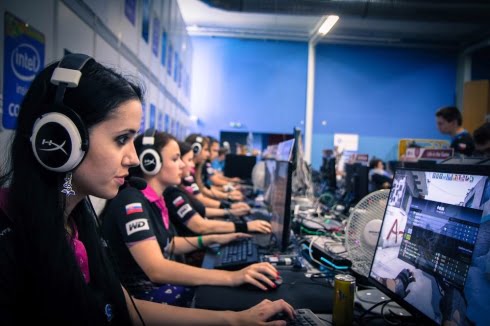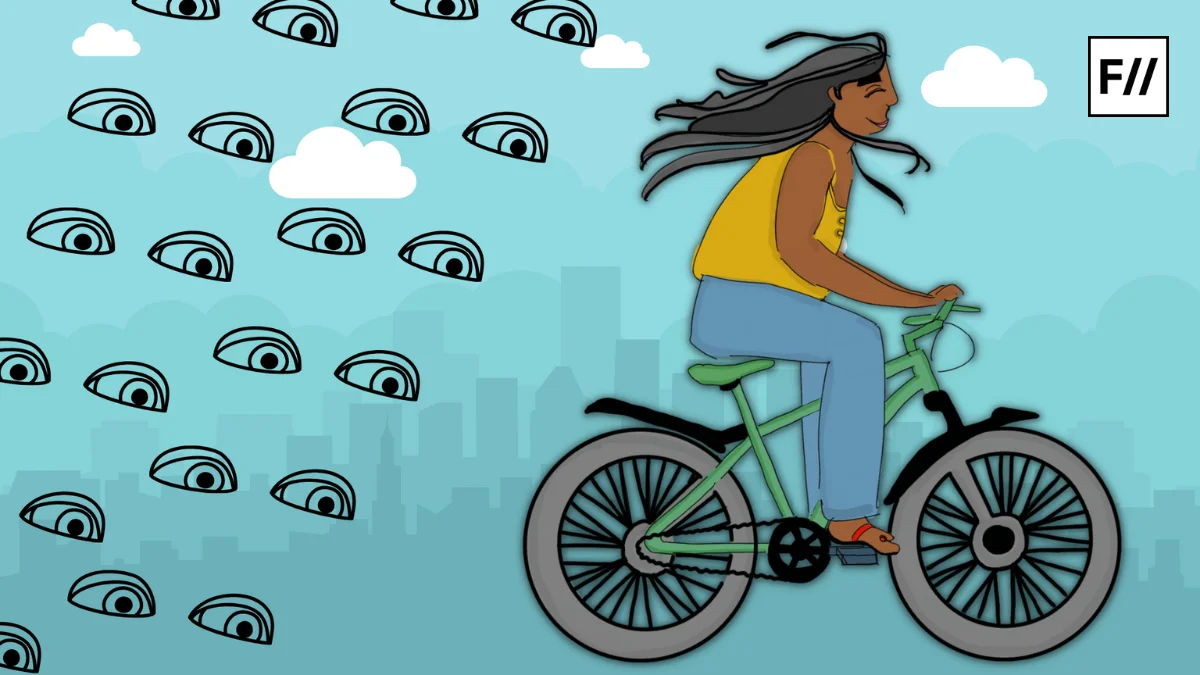It seems like we are subjected to gender stereotypes even before we learn to crawl. Pink for girl babies, blue for boy babies. Barbies for girls, Hot Wheels for boys. Pink teddy bears, cute clothes for Barbies, tiny kitchen sets and accessories normalized the idea of domestication for girls, and the idea that I had to limit my choices to only these things suffocated me.
As I was growing up, Mario and Contra were everyone’s favourite games – the idea of having games in your smartphones was too far into the future back then. I used to enjoy visiting my cousin’s place, not because she had a lot of Barbie dolls, but because her brother had a laptop and he used to play Road Rash and Mario on the laptop. I used to be fascinated just looking at my cousin playing games on the computer and mildly envious when he would brag about how his parents got him the computer system on his birthday.
Also read: Children’s Advertisements: Making Or Breaking Gender Stereotypes?
I knew what I’d ask my parents for for my next birthday gift. So when the time came, I asked them for a computer so I could play games, just like my cousin. It was the first time I had felt the heavy weight of sexism directly. I was told, “Tum paagal ho, ladki hoke ladko wali games khelogi” (Are you crazy? Being a girl, you want to play with the games that boys play with!)
For someone who is not too passionate about gaming, they might just give up, instead of fighting to have certain consoles that boys get just like that.
I had to beg them, time and again, to get me a computer because I wanted to play Mario just like my cousins. It was only a whole year of “girls don’t play games” and “go play with your dolls” later that my cousin brother finally convinced my dad to get me a computer.
As technology advanced, so did the gaming industry. I got my big revolution when my cousin brother got his Play Station 2, which introduced me to better games like God of War and Call of Duty. In no time, we shifted to more mobile versions of consoles like PSPs and tabs. However, I was exposed to a wider and a more connected gaming culture when I got my own smartphone. I started playing Clash Royale, which was my segue into the big games that I explored later, like DOTA and PUBG.
There’s undoubtedly a gender disparity that exists in the gaming industry because of the stereotyping of genders. Your culture affects your introduction to gaming. For someone who is not too passionate about gaming, they might just give up, instead of fighting to have certain consoles that boys get just like that.
“I have tried a lot to attract women to the gaming industry in India. Once, I tried to make an ‘all-female clan’”, says Apoorva Mohan, a professional woman gamer.
Video games are not always the most friendly towards female players. While I think that things have gotten a lot better than they were previously, the mentality of “tits or gtfo” (translation: show us your breasts or get out) is still floating around. Even if we fight for getting devices that help us get into “the man’s club”, the abuse and sexism that one faces online is unavoidable.
I started my online gaming journey with Clash Royale, which has automated texts and emojis and a group chat between the clan members for them to communicate with each other. Once you’re known as a female player, other players try to hit on you, or maybe even call you names. While the game provides a safe chat feature, players subvert this by using that hashtags or asterisks in their curse words. There’s no option of reporting the account of another player, unless you write an email to Supercell, the developers of the game.
One of my favourite games, DOTA, has a voice chat feature while playing. Having played for the past one year, I have never had the luck of having a woman player on the team. But the developers recently added the feature of reporting the account of your co-player, which is a great step towards accountability and combatting online harassment.
The assumption that only men can play fighting or “serious” games is dangerous, because it propagates the stereotype that women are less smart or analytical than men
The most addictive game of all time in my opinion, that has a great fanbase in India, is PUBG. It has the option of voice chat and once people know you’re a woman gamer, you’re subjected to a continuous stream of nonsense. I was called a prostitute because I didn’t help someone revive themselves. That was exactly when I decided to quit PUBG. However, the reporting of your co-player’s account comes in handy after the new update, as I’ve been told by my friends.
Also read: 9 Feminist Digital Security Guides That You Must Read | #DigitalHifazat
It can be argued that men’s and women’s physical sport requires separate divisions as men and women have different body chemistries. However, for things like e-sports, which are mainly mental sports, can we really create divisions on the basis of gender? The assumption that only men can play fighting or “serious” games is dangerous, because it propagates the stereotype that women are less smart or analytical than men, even when it comes to gaming.
It’s hard for me to believe the lack of professional female players is about biology when there are some really amazing female players. However, society and culture play a huge part, and it is up to all of us to make a gaming environment that is more welcoming and conducive for women to play in.
Featured Image Credit: VitaDaily
About the author(s)
Racheeta Chawla is a law student aiming to build an inclusive society.




